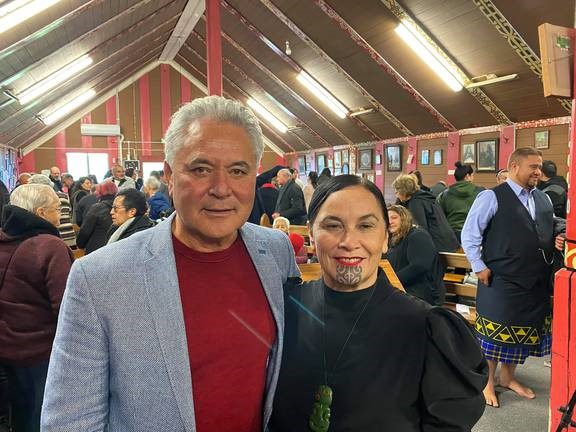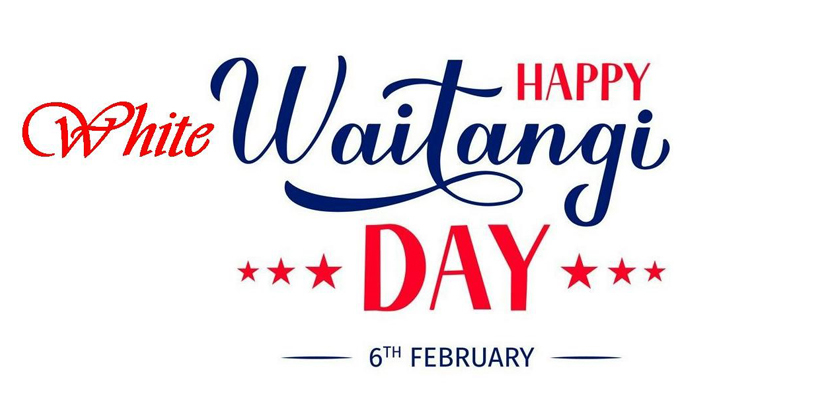October 20, 2023
Intergenerational change re-shapes the Māori Electorates – Special Votes could change some results


Election Night Results
Te Pāti Māori won four Maori seats in the preliminary results from election night, doubled their party vote from 14.3% to 28.6%. Labour retains three seats and has won the party vote. Special votes due out on 5 November may decide the final results in two or more electorates depending on whose campaign teams were strongest on the ground.
Labour led the pre-election Māori TV–Curia Māori polls in six electorates. However, their average 2% lead was well down on their 22% advantage before Election 2020. That election also saw an average 7% election swing to Te Pāti Māori in six seats. A four-three split was always on (see my column 13 Oct on Waatea News).
Bucking a trend to Te Pāti Maori, Ikaroa-Rāwhiti has remained loyal to Labour. With four candidates across three Māori electorates the Greens and National, the latter not standing in the electorates since 2005, has influenced some results. Votes were marginally down in six electorates, more so in Tāmaki Makaurau (-7.4%) and Te Tai Tonga (-6.7%).
Te Pāti Māori
In an election plagued by race-baiting, the swing to Te Pāti Māori has sent a clear message supporting a strong ‘By Māori For Māori’ voice with greater freedom to push back against racism, defend Te Tiriti o Waitangi and promote Kaupapa Māori.
The result also portends an intergenerational change in Māori voting. While 900,000 Pākehā aged over-50 are the largest voting demographic nationally, over the last three elections rangatahi aged 18-34 have become the largest voting Māori cohort.
This revolution will grow further. Currently, 65% of the Māori population, the under-35 age group, is growing rapidly. Two to five times more new Māori voters, most of them young, opt for the Māori roll in every Māori Electoral Option.
Forthright, assertive, increasingly bi-lingual, confident in identity and ancestry, and educated and street-wise, new Māori leaders are emerging at younger ages. Aotearoa’s youngest MP ever, Hana-Rāwhiti Maipi-Clarke and Tākuta Ferris have wrestled seats from Māori political royalty in Hauraki-Waikato Ferris and Te Tai Tonga.
The win is a testament to the leadership of savvy party president, John Tamihere, and parliamentary co-leaders the unyielding Debs Ngārewa Packer and visceral Rawiri Waititi. Waititi delivered the best line of the election. When asked by Jack Tame why Te Pāti Māori was not discussing coalitions, Waititi replied “We have been in opposition since 1840 after that first coalition fell apart”.

Labour Wins
Labour has won the tussle for Ikaroa-Rāwhiti. They hold Tāmaki Makaurau and Te Tai Tokerau albeit with smaller majorities and have won the party vote in all the Māori electorates with a cumulative 44.5%. This is down on the 62.3% they won in 2020 but healthy. The ambient signal is that Māori voters want Labour-led governments to work with Te Pāti Māori rather than against them.
Labour’s Māori caucus can be proud of their record. Over the last four years, they secured an average $960 million Māori budget vote totalling $3.84 billion, 3.5 times higher than the last four years of the last National – Te Pāti Māori government.
They advanced UNDRIP through He Puapua and co-governance via Affordable Water and progressed groundbreaking policies like Paiheretia Te Muka Tāngata in Corrections and Ka Hikitia – The Māori Education Strategy, the best such strategy in 20 years.
In 2021, when Māori were the highest Covid-19 cases for 60 consecutive days and 50% of total Delta cases and deaths, Labour Deputy Leader Kelvin Davis, Willie Jackson and Peeni Henare were instrumental in securing funding that saved many Māori lives.

Labour has paid a price for not sufficiently supporting their Māori MPs. Jackson and Nanaia are the target of much racist vitriol. From the sidelines, there is a sense that their senior Pākehā colleagues fall short in defending them. The defection of Meka Whaitiri, loss of Kiritapu Allen and Labour Leader Chris Hipkins’ policy bonfire as it affected Māhuta and Jackson enhanced a sense of unsafeness. Hipkins defended co-governance during the election. His Māori MPs needed more.
Te Tai Tokerau
Davis lost 3949 votes from election night 2020. Formidable mana wahine candidates Mariameno Kapa-Kingi for Te Pāti Māori and Hūhana Lyndon for the Greens received about half each while also picking up other votes from no longer extant parties like Advance New Zealand.
The congruence between Te Pāti Māori and the Greens on te Tiriti, introducing a wealth tax, and lifting tax thresholds split the vote in a way that likely cost Te Pāti Māori an outright win.
Davis holds a majority of 486. In 2020, he received 3200 special votes compared to 1800 for Te Pāti Māori. He should hold.
Tāmaki Makaurau
The massive shift to the right and a kickback against the Covid-19 lockdowns in Auckland’s general seats did not eventuate in the Māori electorate. Henare lost 431 votes. However, the Pāti Māori vote only increased by 14, and the Greens lost 1662 votes, because of the absence of Tamihere and Green co-leader Marama Davidson the best performing Māori MPs in 2020. With Te Pāti Māori and Labour both receiving just over 2,400 special votes in 2020, a tight result looms.
Hauraki-Waikato
Charismatic Maihi-Clarke, who encapsulates the rangatahi revolution, ousted doyenne-tapairu Māhuta. Māhuta lost 4136 votes. Maipi-Clarke more than doubled the Te Pāti Māori vote to win a 1366 majority. Special votes could change the result. Māhuta received over 3900 special votes in 2020 and Te Pāti Māori just under 1900.
Te Tai Hauāuru and Waiāriki
Ngārewa Packer and Waititi have forged a formidable leadership duopoly. Ngārewa Packer was all over Te Tai Hauāuru converting an 1136 vote defeat in 2020 into a 6347 victory. Labour lost 4136 votes, about 3000 to Ngārewa Packer and interestingly about 1000 to National’s Harete Hīpango.
Waititi has grown a large flax roots campaign team in Waiāriki to blast a narrow 436 win in 2020 into a massive 11495 triumph. Special votes will not change these results.
Ikaroa-Rāwhiti
Whaitiri lost her bid to win the electorate for Te Pāti Māori. This should not reflect on her character. The task was always monumental given the legacy of Labour stalwart Parekura Horomia and that apart from Tūariki Delamere in 1996, Labour has won 28 elections dating back to 1943.
Te Tai Tonga
Ferries usurped the Eruera Tirikātene, Whetū Tirikātene-Sullivan and Te Rino Tirikātene dynasty which had won the electorate 26 times since 1932. Tirikātene dropped 3213 votes. Ferris increased his by 3926 to win by 1463. The final outcome will be interesting with Tirikātene receiving 3100 special votes in 2020 and Te Pāti Māori just over 1900.
The Far Right
In other positives, the tangatawhenua electorates have rejected the impertinence of far-right conspiracy parties like Loyalty and FreedomsNZ. They have also dismissed Act Leader David Seymour’s flagship referendum on the Principles of the Treaty, his party vote falling to an appropriately miserable 1.2%.
One ponders the implications once special votes are known should Te Pāti Māori create a triple overhang by gaining one seat and National lose one.
Dr Rawiri Taonui












